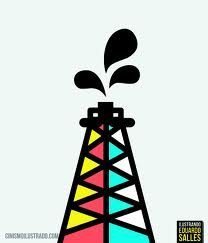 Employment is the accomplishment of a series of tasks in exchange for a pecuniary remuneration called salary. In today's society, workers trade their skills in the so-called labor market, which is regulated by state powers to avoid conflicts. The company would be the place where the powers of the different workers interact in order to receive a profit.
Employment is the accomplishment of a series of tasks in exchange for a pecuniary remuneration called salary. In today's society, workers trade their skills in the so-called labor market, which is regulated by state powers to avoid conflicts. The company would be the place where the powers of the different workers interact in order to receive a profit.
This order in the production of goods and services is closely linked to the heyday of capitalism. Instead, at the dawn of humanity, the work of the most prominent societies was carried out mainly from the use of slaves that they did not dispose of their lives and that they were subject to commercial trafficking. In the Middle Ages, on the other hand, the work was carried out by the so-called “serfs”, who offered part of what they produced to the so-called “feudal lord”, who was the owner of the lands. With the development of the bourgeoisie, the social relations were changing, suppressing the feudal regime, but maintaining slavery.
With the arrival of the 19th century, the work moves away from this ominous situation and approaches the current conception in our days. Both slavery and servitude have been eradicated largely thanks to the recognition of freedom and respect for the physical and moral integrity of man in documents of international organizations such as the Universal Declaration of Human Rights, proclaimed by the United Nations (UN) . Precisely in this Declaration both forms of possession of persons are totally abolished (rejected) and work is instead conceived as an activity carried out by the person, through free choice, without the pressure or obligation of anyone who requires him to do it (this does not it has to do with the tasks and responsibilities that each one has within a company or a particular job position).
The call Industrial Revolution indirectly derived in many of the protections that safeguard the worker in our days. The replacement of labor by machinery had, at first, pernicious consequences on society, inasmuch as it reduced labor costs to the point of leading to the deepest misery of a large number of workers. However, this helpless position of the worker led to the establishment of unions that protected their interests.
During the Welfare State, consolidated on the basis of Keynesianism, the workers, grouped in unions, managed to have what we know today as “labor rights” recognized. Among other things, from that moment on, workers began to enjoy paid vacations, weekly rest days according to how much they worked, days of no more than eight hours, and the wages of the time were visibly increased. The vision of the working man also conceived him as a consumer subject, so if that "working man" had his salary increased, and then he had more money, this would favor the action of the "consumer man".
With the implementation of so-called Neoliberalism measures, many of these rights won by the workers were visibly affected. One of the most drastic measures of neoliberal governments is to guarantee labor flexibility, which clearly favors capitalists (companies). Another measure was to suspend the “unemployment funds” that were paid for a certain time (3 or 6 months, generally) to a worker when he was fired from his job with or without explicit cause.
At present, the employment is a difficult circumstance to guarantee for the entire workforce. This makes the states redouble their efforts to reduce the number of unemployed to a minimum, and therefore alleviate the negative consequences that would derive from this situation.
In a context of global crisis and social unrest, however, it is not easy for governments to envision which path or what economic “recipes” to follow to combat the issue of employment / unemployment. On the other hand, it is not so clear for the citizens to see if the rulers really intend to implement effective and viable plans to reduce unemployment and promote employment. In this sense, the battle is still being followed by the capitalists. In areas such as Latin America or Africa, programs such as those of the United Nations try to “empower” rural populations and women to achieve sustainable economies that also favor human development.









